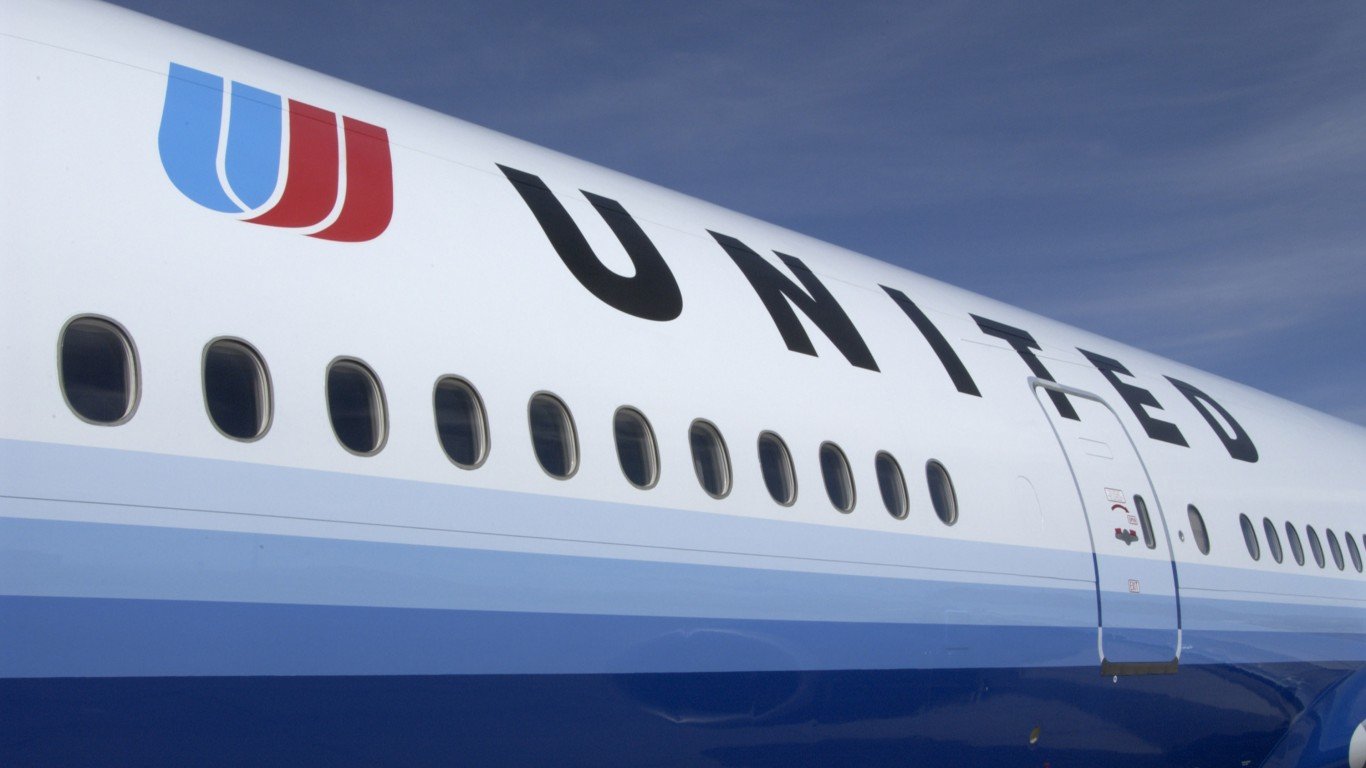

U.S. airlines have taken a financial beating as the COVID-19 pandemic has caused governments to restrict flights and ordered stay-at-home rules. When Delta Air Lines Co. Inc. (NYSE: DAL) reported first-quarter results Wednesday morning, the company talked primarily about how it plans to remain in business through the end of the June quarter.
The good bit of the news is that the airline expects to slash $5 billion from quarterly expenses, about half Delta’s typical daily spending of $100 million a day. The airline will park 650 airplanes, more than two-thirds of its entire fleet. Delta is also instituting a hiring freeze, offering voluntary leave options to 37,000 employees, reducing pay for executive management and cutting work schedules.
Delta also said it has raised $5.4 billion in capital since early March, including a $3 billion secured term loan, $1.2 billion aircraft sale and leasebacks, and $1.1 billion in trust certificates. The airline has drawn down $3 billion under its existing revolving credit facilities, reduced capital spending plans by $3 billion, extended payment terms with various suppliers and suspended share buybacks and dividends.
Delta Air Lines has agreed to CARES Act financial assistance totaling $5.4 billion in payroll support funds to prevent involuntary layoffs or pay cuts. Included in the funding is an unsecured 10-year low-interest loan of $1.6 billion for which Delta will provide the government with warrants to acquire about 1% of Delta stock over a five-year period.
The not-so-good news is that total system capacity will be cut by 85% in the second quarter, down by 80% domestically and 90% internationally. CEO Ed Bastien said in the quarterly earnings release that June quarter revenues will fall by 90% year over year.
United Airlines Holdings Inc. (NASDAQ: UAL) said on Tuesday that it priced a secondary offering of 39.25 million shares of stock at $26.50 a share to raise $1 billion. United is the first airline to offer more shares, but it is unlikely to be the last.
Like Delta, United has received financial assistance from the CARES Act. The airline expects to receive $5 billion, of which $3.5 billion is a direct grant and $1.5 billion is a low-interest rate loan to pay salaries and benefits for its thousands of employees. United will issue approximately 4.6 million warrants to the federal government.
Also like Delta, United is expecting its schedule for May and June to be reduced by 90%. In a memo to employees last week, CEO Oscar Munoz and President J. Scott Kirby noted: “Travel demand is essentially zero and shows no sign of improving in the near-term.”
CARES Act funding lasts only through September. While that’s nearly six months in the future, that is not a lot of time to turn passenger traffic significantly higher. According to the latest data from the Harris Poll, 67% of Americans are unwilling to travel on an airplane, and that’s higher than it was in mid-March.
Nearly as many (62%) say that a vaccine against COVID-19 is needed before normal activities (like flying) resume. However, less than half (44%) say they are “very likely” to get a vaccination as soon as it’s available.
Another survey from the International Air Transport Association (IATA) found that 40% of recent travelers plan to wait at least six months after the virus is contained before taking a flight.
Can the airlines survive for a year or more on far less revenue than they are used to? That’s what the industry is down to now, survival. And survival depends on government assistance, and that suggests that governments will be picking winners and losers. Larger airlines like Delta and United may have to reorganize while small carriers may have no choice but liquidation.
Sponsored: Want to Retire Early? Start Here
Want retirement to come a few years earlier than you’d planned? Orare you ready to retire now, but want an extra set of eyes on your finances?
Now you can speak with up to 3 financial experts in your area for FREE. By simply clicking here you can begin to match with financial professionals who can help you build your plan to retire early. And the best part? The first conversation with them is free.
Click here to match with up to 3 financial pros who would be excited to help you make financial decisions.
Thank you for reading! Have some feedback for us?
Contact the 24/7 Wall St. editorial team.



